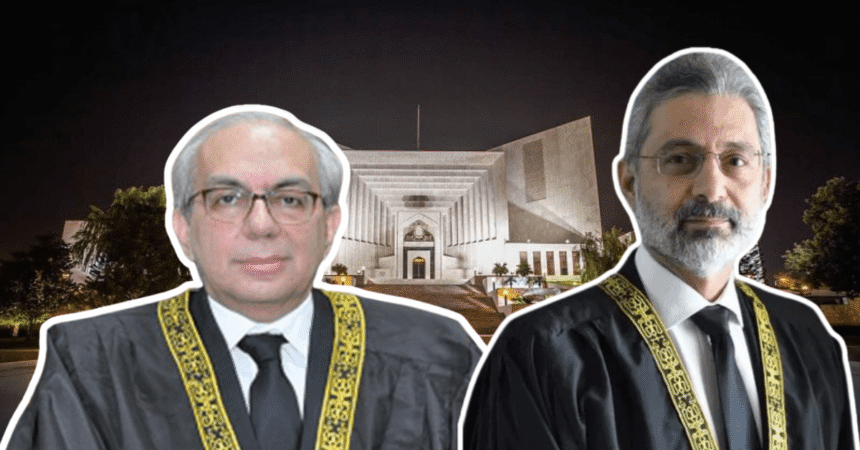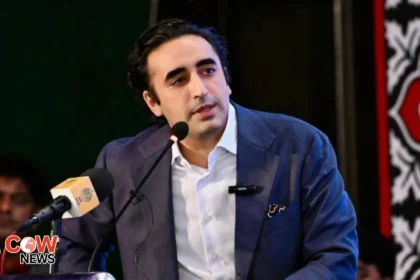In a pivotal moment for Pakistan’s legal and political landscape, the Supreme Court has adjourned hearings on the appeals regarding Article 63-A of the Constitution following Justice Munib Akhtar’s recusal from the bench. This decision has reignited discussions surrounding the interpretation of the article, which plays a crucial role in determining the consequences of party defection among parliament members. Chief Justice Qazi Faez Isa announced that efforts would be made to reinstate Justice Munib or, if that is not possible, to form a new bench to continue the proceedings.
Understanding Article 63-A
Article 63-A of the Pakistani Constitution addresses the issue of disqualification of lawmakers who defect from their political parties. The provision stipulates that a member of Parliament may be disqualified if they defect from the party that elected them. This is intended to maintain party loyalty and prevent political instability caused by defections. The implications of this article are profound, affecting party discipline, governance, and the very nature of democratic representation.
The significance of Article 63-A has grown increasingly apparent in recent years, particularly as political parties face challenges in maintaining cohesion amidst shifting political alliances and public opinion. The importance of this provision is underscored by the court’s previous ruling, which stated that votes cast by defecting members would not be counted, a decision that sought to fortify party unity in the face of political turbulence.
The Supreme Court’s Previous Ruling
The Supreme Court’s decision on May 17, 2022, established that votes cast by defectors against party policies would be disregarded. This ruling stemmed from a presidential reference concerning the interpretation of Article 63-A. The decision was contentious, resulting in a narrow 3-2 split among the justices. The majority opinion, authored by Justice Munib Akhtar, argued that allowing defected votes to count would undermine the very foundation of political parties, which are essential for a functioning democracy.
In dissent, Justices Mazhar Alam Miankhel and Jamal Khan Mandokhail expressed concerns about the implications of such a rigid interpretation. They argued that a more flexible approach would better serve the democratic process by allowing for individual agency among lawmakers and recognizing the fluid nature of political allegiances in a rapidly changing political environment.
Legal Challenges and Review Petitions
In the wake of the Supreme Court’s ruling, several review petitions were filed, including one by the Supreme Court Bar Association (SCBA). The SCBA contended that the framers of the Constitution intended for the disregard of defecting votes to be a temporary measure. They argued that the current interpretation undermines the principles of democracy by limiting the ability of elected representatives to act in the best interest of their constituents.
The ongoing legal battles surrounding Article 63-A are indicative of broader societal debates about governance, accountability, and the nature of representation. The review petitions seek to challenge not only the legal interpretation of the article but also the broader implications it has for the political system in Pakistan.
Political Implications
The implications of the Supreme Court’s ruling extend far beyond the legal framework. Political parties are keenly aware that the court’s interpretation of Article 63-A could significantly impact their internal dynamics and strategies heading into future elections. As the political landscape in Pakistan becomes increasingly polarized, the outcome of these hearings will likely influence party cohesion and candidate selection.
With political alliances shifting frequently, the ruling on Article 63-A will serve as a benchmark for how parties navigate the complexities of coalition governance. A ruling that allows for greater flexibility regarding defection could potentially lead to a more dynamic political environment, whereas a rigid interpretation may reinforce party discipline at the cost of individual agency among lawmakers.
Reactions from Political Analysts
Political analysts have been vocal in their assessments of the situation. Some view the recusal of Justice Munib as an opportunity for a fresh perspective on the case. They argue that the composition of the bench could play a crucial role in determining the outcome of the review petitions. Others caution that the ongoing legal proceedings could further entrench political divisions and complicate efforts to maintain stability in the parliamentary system.
Experts emphasize that the interpretation of Article 63-A is not merely a legal issue; it reflects broader societal values regarding democracy, representation, and governance. The debates surrounding this article highlight the tension between party loyalty and individual agency, raising important questions about the nature of political representation in Pakistan.
Public Sentiment and Civil Society
Public opinion surrounding the Article 63-A issue is equally divided. Many citizens express frustration over the frequent defections among lawmakers, viewing it as a betrayal of the trust placed in them by their constituents. There is a growing demand for accountability and transparency in political processes, and many citizens believe that the courts should take a firm stance against defection to restore faith in the democratic system.
Civil society organizations have also taken an active interest in the discourse surrounding Article 63-A. They argue that the stability of political parties is essential for effective governance and that a clear interpretation of the article is necessary to prevent political opportunism. Advocacy groups are urging the courts to consider the broader implications of their decisions on democratic principles and governance.
The Role of the Supreme Court
As the Supreme Court prepares to reconvene, the importance of its role in shaping the political landscape cannot be overstated. The justices must carefully navigate the competing interests of party loyalty, individual representation, and the stability of the parliamentary system. The decisions made in the coming days will set critical precedents for how Article 63-A is interpreted and enforced in the future.
The court’s decisions will not only impact current lawmakers but also future generations of politicians and the electorate. A ruling that emphasizes party loyalty may reinforce existing power structures, while a more flexible interpretation could empower individual lawmakers to better represent the interests of their constituents.
Future Directions
Looking ahead, the Supreme Court’s forthcoming rulings will have far-reaching consequences for Pakistan’s political landscape. The intersection of legal interpretations and political realities will shape how parties operate within the frameworks established by the Constitution.
Political observers are keenly watching how the bench, whether it remains with Justice Munib or transitions to new justices, will tackle the complexities of the case. The implications of these decisions will likely resonate through Pakistan’s political institutions for years to come, influencing party dynamics, electoral strategies, and the very fabric of governance.
The need for a balanced approach that respects both party integrity and individual agency is paramount. As Pakistan grapples with its political challenges, the Supreme Court’s interpretation of Article 63-A will serve as a crucial touchstone for understanding the future of democracy in the country.
The adjournment of the hearing concerning Article 63-A following Justice Munib’s recusal marks a significant moment in Pakistan’s ongoing legal and political discourse. As the Supreme Court prepares to address these critical issues, the outcomes will undoubtedly shape the future of political governance in Pakistan. The intricate relationship between law and politics will continue to be tested, as the nation seeks to navigate its complex democratic landscape.
The discussions surrounding Article 63-A highlight the ongoing struggle between maintaining party loyalty and allowing for individual expression within the political system. As Pakistan stands at this crossroads, the interpretations and decisions made by the judiciary will play a fundamental role in determining the direction of its democratic evolution.
#SupremeCourt #Article63A #PakistanPolitics #JusticeMunib #PoliticalStability #SCBA #LegalReview #Democracy #ConstitutionalLaw #PoliticalAnalysis







